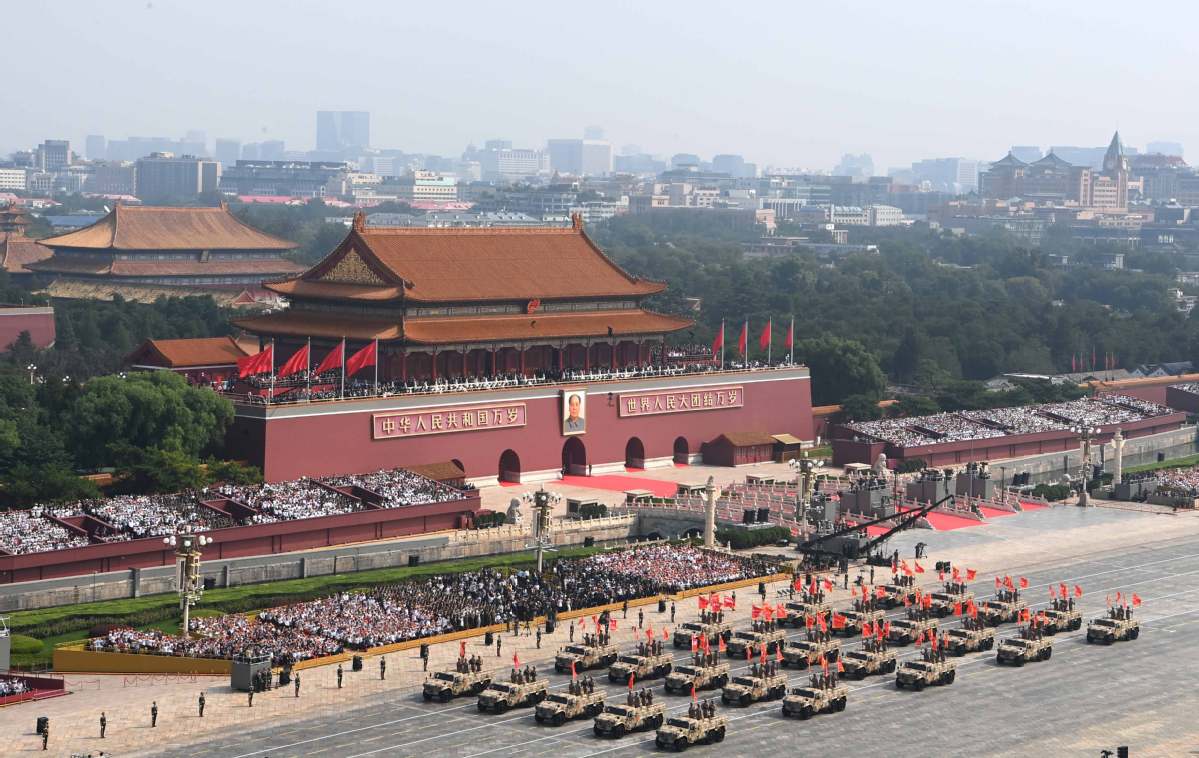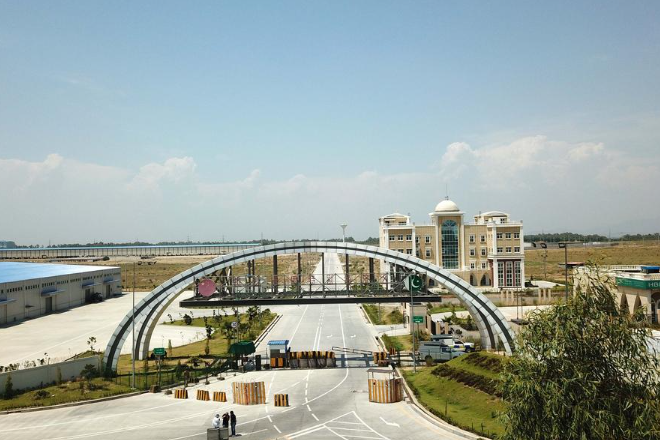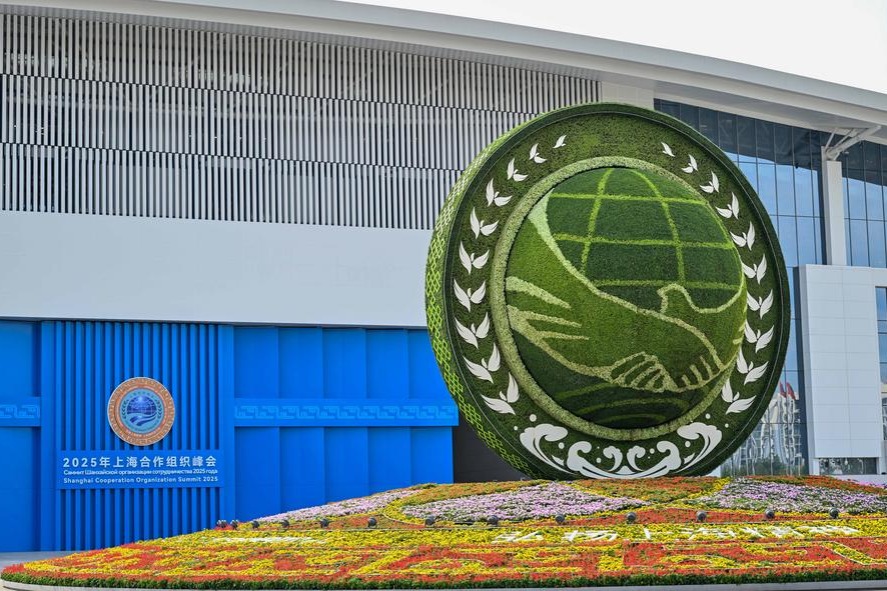Grand parade seen as China's pledge to peace
Xi's speech calls on world to remember history, prevent recurrence of tragedies


Experts worldwide said that the military parade China held in Beijing on Wednesday, commemorating the 80th anniversary of the victory in the Chinese People's War of Resistance Against Japanese Aggression (1931-45) and the World Anti-Fascist War, is a reaffirmation of its commitment to peaceful development and a solemn call to remember history.
Chinese President Xi Jinping, also general secretary of the Communist Party of China Central Committee and chairman of the Central Military Commission, oversaw the parade and reviewed the troops.
In his speech delivered before the parade, Xi noted that the Chinese people made a significant contribution to the salvation of human civilization and the defense of world peace through immense sacrifices in the war. Reiterating China's commitment to peaceful development, Xi called on nations to prevent historical tragedies from recurring.
David Orzan, ambassador in World of Excellence of the northeastern Italian city of Gorizia, said that China's sacrifices and perseverance "should be remembered by the entire world". He said that Xi's speech helped the world remember history and prevent the recurrence of tragedy.
Atsushi Koketsu, a professor emeritus at Yamaguchi University in Japan, said that Xi's address underscored the vital role of history as a mirror reflecting the present and the future.
He also expressed regret that Japan remains "extremely weak" in its attitude toward acknowledging historical truths, warning that "those who do not learn from history are bound to be punished by it".
Kumiko Haba, a distinguished professor at Josai International University, said the Japanese government should follow the example of former prime minister Tomiichi Murayama and issue a sincere apology.
'Heartfelt apology'
In 1995, on the 50th anniversary of Japan's surrender, then-prime minister Tomiichi Murayama issued the "Murayama Statement", acknowledging that Japan's colonial rule and aggression had caused "tremendous damage and suffering" to many countries, and expressed "deep remorse and heartfelt apology".
But successive politicians of the Liberal Democratic Party, including current Prime Minister Shigeru Ishiba, have failed to deliver words of profound apology, and "this is truly regrettable", Haba said.
"I hope people will not forget that many Japanese citizens hold the conviction of 'never starting another war, never being enemies with China'," she added. "I sincerely hope to promote peaceful exchanges among young people and see them continue to develop."
Takakage Fujita, secretary-general of the Association for Inheriting and Propagating the Murayama Statement, emphasized that Japan, because of its misguided national policy, launched a war of aggression against China. The Japanese people must deeply recognize this aggression, express profound remorse, and sincerely apologize to the Chinese people who suffered enormous sacrifices and damage, he said.
"At the same time, Japan must make every effort and take concrete actions to ensure that it will never again launch aggression against Asia or China," Fujita added.
Common development
The commemorative events solemnly declare to the world the great rejuvenation of the Chinese nation, he said, adding that for more countries around the world to achieve common development, shared prosperity and collective happiness, it is essential to embrace the vision of a community with a shared future for humanity proposed by President Xi and emphasized at the commemoration.
"Today, humanity again has to choose between peace and war, dialogue and confrontation, win-win cooperation and zero-sum game," Xi said, stressing that, "The Chinese people firmly stand on the right side of history and the progress of human civilization. We will remain committed to the path of peaceful development, and join hands with all peoples around the world in building a community with a shared future for humanity."
Haba from Japan said she was impressed by Xi's vision of a community with a shared future for humanity.
She strongly endorsed the principle of equality and cooperation among all countries and peoples, and held profound respect for the idea of harmony without uniformity in Chinese culture.
Stephen Ndegwa, a Kenyan expert on international issues, said he believed that Xi's speech reinforced "the need for fairness, justice and cooperation in today's global order".
"The speech speaks directly to the challenges of our time … and it affirms China's vision of peace and development as inseparable pillars of global progress — something Africa strongly identifies with," the scholar said.
Xinhua contributed to this story.

































